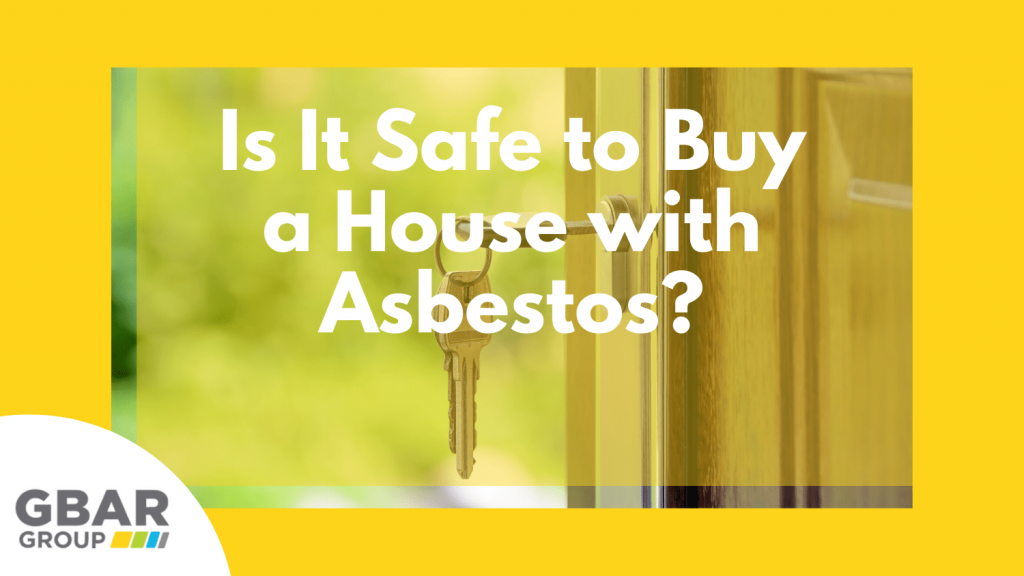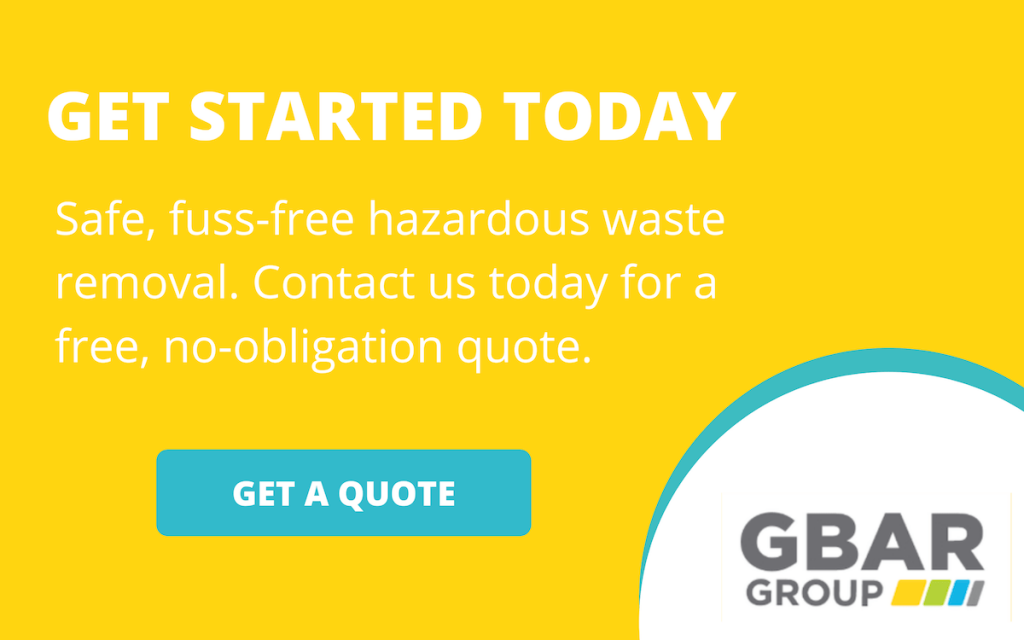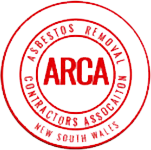
TL;DR: Should you buy a house with asbestos?
Buying a house with asbestos isn’t always a deal-breaker – but it does come with responsibilities. Around one-third of Australian homes contain some form of asbestos, especially those built before 1990. If the asbestos is non-friable (intact and undisturbed), it generally doesn’t pose an immediate risk. However, buyers should always get a professional asbestos inspection before purchasing. With expert assessment and management, many homes with asbestos can still be safe to live in.
Is it safe to buy a house with asbestos?
Expert insight from Darren Hutchison, senior project manager at the GBAR Group
Darren Hutchison is one of GBAR Group’s Senior Project Managers, with over 20 years of experience in the demolition and hazardous materials removal industry. His expertise spans industrial, commercial, and residential sectors. Darren holds tertiary qualifications in Workplace Health & Safety and is passionate about building long-term client relationships with property owners and ensuring risk-free environments.
“If asbestos-containing materials are intact, in good condition and left undisturbed, they pose minimal risk. It’s when the materials are damaged or disturbed – especially during renovations – that the danger increases due to the release of asbestos fibres ,” says Darren.
What is asbestos and why is it dangerous?
Asbestos is a naturally occurring mineral that was widely used in Australian construction between the 1930s and 1990s. It was prized as a miracle material for its fire resistance, durability, and insulation properties – until research revealed the serious health risks of asbestos exposure.
Asbestos fibres are microscopic and can become airborne when disturbed. Once inhaled, they lodge in the lungs and remain there permanently, potentially causing issues due to tiny fibres :
- Mesothelioma
- Lung cancer
- Asbestosis
- Pleural plaquing
These diseases often develop decades after exposure, making early detection and awareness of health problems important to recognise.
Australia banned the use, import, and manufacture of asbestos in 2003. However, asbestos-containing materials (ACMs) remain in many older homes and buildings today.
Where is asbestos found in Australian homes?
It’s estimated that around one-third of Australian homes still contain asbestos. Houses built or renovated before 1990 are the most likely to be affected in the current housing market .
Common locations for asbestos in homes include:
- Roofing (especially houses with asbestos roof)
- Eaves and soffits
- Internal walls and ceilings
- Vinyl floor tiles and backing
- Carpet underlay
- Wet areas such as bathrooms and laundries
- Fencing and sheds
A house with asbestos roof may still be safe to live in if the materials are bonded and in good condition, but it should always be professionally assessed for any asbestos materials .
Friable vs non-friable asbestos: what’s the risk?
Friable asbestos is loose, powdery, and easily crumbled – meaning harmful asbestos fibres can be released into the air with minimal disturbance. This type is highly dangerous and often found in loose-fill insulation (e.g. Mr Fluffy).
Non-friable asbestos, also known as bonded asbestos, is mixed with cement or other hard materials, which can create dust if disturbed . It’s far more stable and considered low risk – unless it becomes damaged, weathered, or is cut or drilled during renovation.
“Many homeowners unknowingly disturb asbestos materials during simple DIY projects. That’s when a manageable material becomes a serious health hazard,” Darren explains.
Is it legal to sell or buy a house with asbestos in Australia?
Yes, it is legal to sell or buy a house with asbestos in Australia. However, there are some legal obligations:
- Disclosure: Sellers and agents are required to disclose known asbestos risks.
- Inspection reports: While general pre-purchase building inspections may identify visible ACMs, they don’t confirm the presence or safety of asbestos.
- Asbestos registers: Commercial buildings require asbestos registers – but residential homes do not, unless used as workplaces (e.g. daycares).
This is why an asbestos-specific inspection is strongly recommended before purchasing.
If you’re buying a house with asbestos, understanding these legal obligations is essential to protect your health and investment.
Is buying a house with asbestos safe?
In many cases, yes – if the asbestos is non-friable and in good condition. However, a few key considerations will help determine the true level of risk:
- The type and condition of asbestos materials
- Whether renovations or demolition are planned
- The age and exposure of the materials
- Whether professional asbestos testing has been done
If asbestos is found, your options include:
- Leaving it in place and monitoring it
- Safely removing high-risk materials
- Negotiating the cost of removal from the purchase price
“Professional asbestos removal should always be budgeted for when buying older properties,” says Darren.
If you’re buying a house with asbestos, plan for expert testing to find asbestos and the potential removal costs before making an offer.
Should I buy a house that contains asbestos?
Buying a house with asbestos doesn’t automatically mean it’s unsafe – but it does mean doing your due diligence.
If you’re not planning any major renovations and the asbestos is bonded and intact, the risk is minimal. However, if you’re a home renovator or DIY enthusiast, asbestos becomes a much bigger concern.
It’s especially important not to attempt removal yourself. Many experts warn of a “third wave” of asbestos-related diseases – this time affecting home renovators and tradespeople exposed to fibres unknowingly.
Before signing a contract:
- Get a professional asbestos inspection
- Request a quote for removing asbestos (if needed)
- Factor the removal process cost into your offer
- Avoid DIY work until remediation is complete
Remember, buying a house with asbestos requires more planning – but it doesn’t have to be a deal-breaker.
Can you sell a house with asbestos?
Yes, you can sell a house with asbestos in the Australian. There’s no legal obligation to remove it before sale, but sellers must disclose asbestos risks if they are known.
That said, homes with confirmed asbestos issues – especially if friable – may:
- Affect buyer confidence
- Lower the sale price
- Require legal or remediation documents
If you’re preparing to sell a house with asbestos, it’s smart to get a pre-sale inspection and documentation from a licensed asbestos removalist.
And if you’re the buyer, asking the real estate agent, “can you sell a house with asbestos” helps clarify your expectations during negotiations.
Why a professional asbestos inspection matters
A standard building inspection won’t always identify asbestos. That’s why a licensed asbestos assessment is vital.
At GBAR Group, our trained assessors:
- Identify and map suspected asbestos-containing materials and potential health hazards
- Test samples in accredited labs
- Provide detailed reports and removal recommendations
You can also explore the Asbestos Product Guide – a government tool that shows common asbestos products found in Australian buildings.
If you’re buying a house with asbestos, this guide can help you understand what to look for – and when to call in the pros.
Final thoughts: is it worth it?
Buying a house with asbestos present can be safe – if you’re informed and prepared.
Asbestos in your home doesn’t always need to be removed immediately. With expert advice, proper inspections, and risk mitigation, many asbestos-containing homes can be safely purchased, renovated, or lived in, unless they are contaminated .
What matters most is your awareness, risk tolerance, and commitment to safety.
Even a house with asbestos roof can be safe if properly managed. The key is getting professional help to evaluate the risk of your own home.
Call in the experts
Before buying or selling a property with asbestos, get expert help from GBAR Group.
With licensed teams across Queensland, NSW, ACT, SA, and NT, we specialise in:
- Asbestos inspections and testing
- Residential and commercial asbestos removal
- Safe remediation of hazardous materials
Contact us to book your professional asbestos assessment today.






